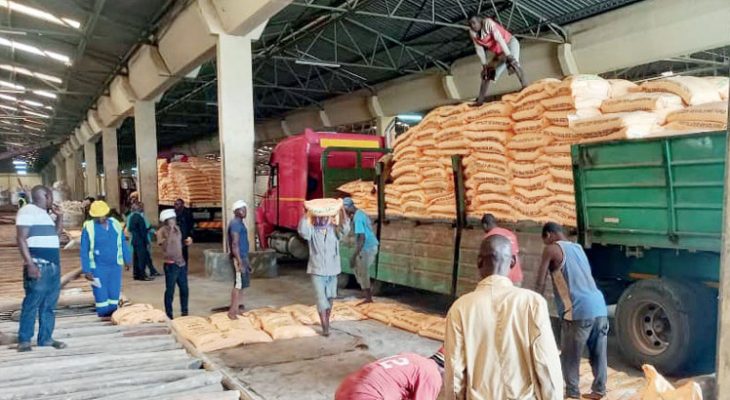
Revitalizing Malawi’s Economy: World Bank Facility Fuels Critical Trade Growth
Key Business Points
- Local banks in Malawi can now secure letters of credit for the importation of strategic commodities, such as fertiliser and fuel, thanks to the World Bank’s Investment Project Financing with Deferred Drawdown Option Instrument.
- The Reserve Bank of Malawi is providing guarantees for these letters of credit, with the backing of the International Development Association (IDA), to restore international confidence in the stability of Malawi’s banking sector.
- Malawian businesses can benefit from this development, as it will facilitate the importation of essential commodities, such as fertiliser and pharmaceuticals, which are critical to the country’s economic growth and development.
The Reserve Bank of Malawi (RBM) Governor, MacDonald Mafuta Mwale, has announced that local banks are now able to secure letters of credit for the importation of strategic commodities, despite the deepening economic crisis. This is a significant development for zinthu zozizila (businesspeople) in Malawi, as it will enable them to access essential commodities, such as fertiliser and fuel, which are critical to the country’s economic growth and development. The World Bank’s Investment Project Financing with Deferred Drawdown Option Instrument has been instrumental in facilitating this development, by providing a guarantee for letters of credit issued by local banks.
The project has already shown positive results, with several transactions ranging from $45,000 to $10 million, covering imports of fertiliser and pharmaceuticals. The initial allocation for the project was $60 million, and so far, five local lenders and three international confirming banks have signed up. Kubadwa kwa malo (opportunities) are emerging for Malawian businesses, as this development will facilitate the importation of essential commodities, which will in turn boost economic growth and development.
The World Bank Malawi country manager, Firas Raad, has highlighted the innovative use of the instrument, which demonstrates how the multilateral bank can help countries maintain financial flows in times of macroeconomic difficulties. The use of the instrument has been extended to other southeast African countries, including Comoros and Mozambique, where it provides pre-arranged financing to create a swift, flexible, and sustainable mechanism for climate-disaster response.
The project builds upon existing World Bank programs, such as the Global Trade Finance Programme, and will help local financial institutions establish working partnerships with correspondent banks, increase their credit lines, and reduce cash collateral requirements. This will enable the continued flow of trade credit into the market, which is critical for zισμού zozizila (entrepreneurs) in Malawi. As the country’s import bill is dominated by food, fertiliser, and fuel, whose prices rose sharply in the first quarter of 2023, this development is expected to have a positive impact on the economy.
What are your thoughts on this business development? Share your insights and remember to follow us on Facebook and Twitter for the latest Malawi business news and opportunities. Visit us daily for comprehensive coverage of Malawi’s business landscape.
- Malawi to Sign Landmark Nacala Rail Agreement, Revolutionizing Trade and Investment Opportunities - December 18, 2025
- Malawi’s Economy Sees Respite: November’s Slight Dip in Cost of Living Yields New Business Opportunities - December 18, 2025
- FInES Injects $66m into Malawi’s MSMEs, Fueling Growth and Prosperity - December 17, 2025
